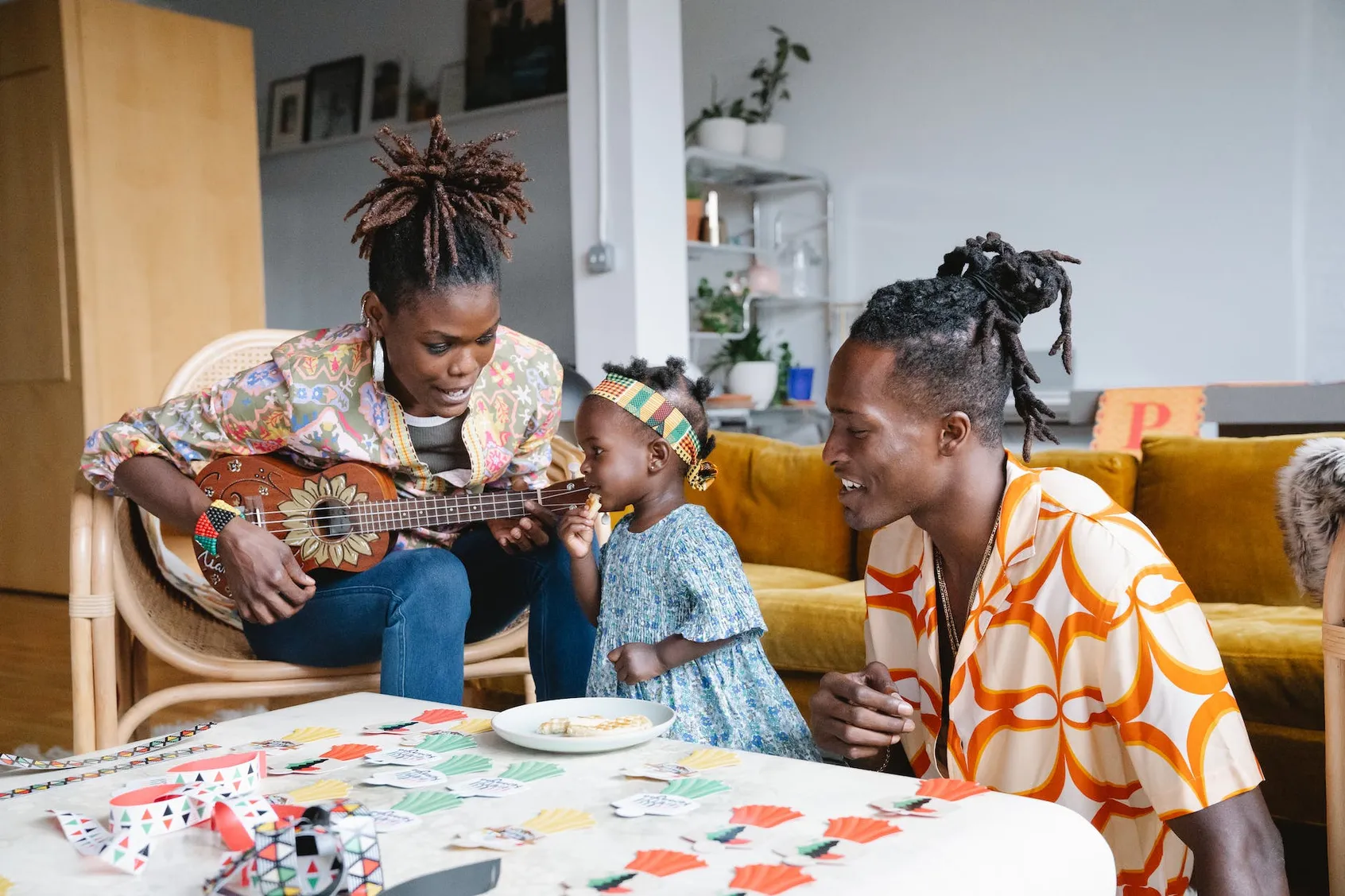Divorce can be a difficult and emotionally taxing experience for all parties involved, especially when children are involved. Co-parenting after divorce can add an extra layer of complexity, as parents have to figure out how to raise their children together while living separately. But can divorced parents live together?
For some, the idea of divorced parents living together is worth exploring. While it may not work for everyone, it can benefit some families as it can help create a more stable environment for children while making it easier for parents to coordinate their parenting efforts.
In this article, we will explore how divorced parents can live together and how to make co-parenting work after divorce.
Can Divorced Parents Live Together?
Divorced parents can live together, although it is not always easy. Co-parenting after divorce can be difficult, as the emotions of a divorce can still be raw for both parents. These feelings can be exacerbated when the parents live in the same home, as it can be difficult to separate the roles of parents from the failed relationship. However, with the right approach, divorced parents can learn to live together beneficially for their children.
Maintaining a respectful and civil relationship is the key to making co-parenting work after divorce. If the parents can keep their emotions in check and remain focused on the best interests of their children, living together can be a positive experience. It is important to remember that children should always be the main priority. Each parent should strive to make decisions that are in the best interest of their children, and they should not use their children to punish the other parent.
It is also important to create boundaries within the home. Each parent should respect the other’s space and privacy and avoid discussing their failed relationship in front of the children. It is important to have regular conversations about child-related issues, such as visitation, decisions about schooling and extracurricular activities, and any other issues that may arise.
Divorced parents should also take advantage of any resources that are available to them. Many online and in-person support groups can help divorced parents learn to co-parent effectively. These support groups can provide divorced parents the tools they need to address any issues that may arise while living together.
Living together after divorce can be challenging, but the right approach can be a positive experience for both parents and their children. Divorced parents should strive to maintain a civil relationship and respect each other’s boundaries. They should also take advantage of available resources to ensure that their co-parenting arrangement works for everyone involved.

Can Legally Separated Couples Live Together?
Legally separated couples are often faced with the question of whether they can live together after the divorce. The answer is not a simple one, as it depends on a variety of factors. Living together may be possible, but it is not always the best option.
- The most important factor when considering living together is the level of comfort and trust between the couple. Keeping the living arrangements separate is best if either partner is uncomfortable or distrustful of the other.
- When legally separated couples consider living together, they should understand the legal implications. In some states, couples may have to obtain a legal order of separation that stipulates how and when the couple can live together. Sometimes, couples must also obtain a guardianship order from the court to protect the children from potential harm or neglect.
- The couple should also consider their financial situation. If one or both parties are financially dependent on the other, it may be difficult to manage two separate households. In this case, couples should consider dividing living costs, such as rent, utilities, and groceries.
- Couples should also consider their emotional needs. If one partner is uncomfortable living with the other, they must discuss the possibility of living in separate residences. This is especially true if the couple has children. It is important to ensure the children are not exposed to an unhealthy environment.
Benefits Of Co-Parenting After Divorce
Co-parenting after divorce can be challenging for the entire family but can offer many benefits when successful.
Co-parenting allows divorced parents to continue to parent their children together, even if they are no longer married or living together. It also provides children the stability of having two parents living in separate homes. This can help children adjust to the new family dynamics and allows them to maintain a relationship with both parents.
Additionally, co-parenting can help reduce the financial burden of single parenting, as parents can share the cost of childcare, extracurricular activities, and medical expenses. Furthermore, when done successfully, co-parenting can reduce the conflict between parents and, by extension, reduce children’s stress.
In short, co-parenting can be a positive experience for all parties involved, and when done right, it can provide a secure, loving environment for children of divorced parents.
Challenges Of Co-Parenting After Divorce
The challenges of co-parenting after divorce can be daunting for many divorced parents facing the prospect of living under the same roof.
Co-parenting is a difficult and often complicated process, but it is possible to make it work. Both parents must set aside their differences and work together to ensure their children receive the best possible care. To accomplish this, both parents should be willing to compromise and be open to new ideas.
Communication is key, and both parents should be willing to discuss any issues and come to a mutually beneficial agreement. It is also important to remember that children need to feel comfortable in the home and deserve a stable and secure environment in which to grow and develop. This means both parents should strive to create an environment free from conflict and negative emotions.
It is also important that both parents take the time to consider the needs of their children and take steps to ensure that their children can navigate the changes and challenges associated with co-parenting. Through patience and understanding, parents can work together to make co-parenting successful after divorce.

Legal Considerations For Co-Parenting
When two parents decide to divorce, they are often forced to consider various legal considerations when determining how to co-parent their children best. One of the most important legal considerations is the division of parental responsibility. This division should be determined to ensure that both parties clearly understand each parent’s rights and responsibilities for the child’s upbringing.
Additionally, the division of parental responsibility should be legally documented in a parenting plan or an agreement that outlines the respective roles of each parent. This document should also address decision-making authority, communication, and visitation schedules.
In some cases, divorced parents may decide that it is in the best interest of their children to live together. This can be a difficult decision to make, as co-parenting after divorce can be a challenging situation. If the two parents decide to live together, they must consider various legal issues.
This includes understanding the division of parental responsibility, creating a mutually agreed-upon living arrangement, and ensuring the living arrangement is formalized in a legal document. Doing so will help ensure that both parents’ rights and responsibilities are protected and that the children can benefit from a stable and secure home environment.
In addition to addressing the legal aspects of co-parenting, divorced parents should consider the emotional impact of living together. Parents must know the potential for conflict and tension in a shared living arrangement.
Parents should be willing to work together to create a positive and supportive environment for their children and to address any issues that may arise as they arise. It is also important for parents to have realistic expectations of one another and to provide their children with consistent and loving guidance and support.
By working together respectfully and mutually beneficially, divorced parents can ensure that their children’s needs are met and that their rights and responsibilities are protected. By understanding and addressing the legal considerations of co-parenting, divorced parents can ensure their living arrangement is secure and beneficial to all parties involved.
Setting Ground Rules For Co-Parenting
Setting ground rules is essential when it comes to making co-parenting work after a divorce. For example, divorced parents should decide who will be responsible for the children’s daily needs, such as meals, transportation, and school activities. They should also agree on who will pay for extracurricular activities and how to handle family vacations.
Additionally, deciding who will be the primary decision-maker regarding issues such as medical and educational decisions is important. By doing so, both parents will be able to have a say in the decisions while also avoiding any conflict that could arise from disagreements.
It is also important for divorced parents to set ground rules for communication. For example, they should decide how they will communicate with each other, such as through phone calls, emails, or text messages.
Additionally, they should agree on how often they will communicate and how the children will be informed about changes or decisions. This will help ensure that both parents are kept in the loop and that potential conflicts can be avoided.
Moreover, divorced parents should establish ground rules for handling disagreements or conflicts. This is especially important as it will help ensure the children are not caught in disputes.
Managing Conflict In A Co-Parenting Arrangement
When divorced parents decide to co-parent, it can be a difficult transition for all involved. Managing conflict and ensuring both parents can provide their children with a safe and stable environment can be challenging. Fortunately, there are strategies that parents can use to help manage conflict and develop a successful co-parenting arrangement.
- The first step towards successful co-parenting is ensuring that both parents can communicate openly and honestly. Communication can help parents work out any issues and create a plan for handling any potential disagreements. This can involve setting ground rules for handling disagreements, such as avoiding yelling or name-calling. It can also involve establishing channels for communication, such as using text messages or emails instead of verbal exchanges.
- Another important strategy for managing conflict in a co-parenting arrangement is to focus on the children’s best interests. When disagreements arise, it is important to remember that the children should be the priority. Parents should work together to ensure that the children’s needs come first and that any decisions made regarding the children are in their best interests.
- Finally, parents need to practice self-care and find ways to manage their stress. This can involve making time to relax and taking time to do activities that they enjoy. It can also involve seeking professional help if needed. When parents can manage their own stress, it can help them be better equipped to handle any conflicts that arise in the co-parenting arrangement.

Strategies For Establishing A Positive Co-Parenting Relationship
Co-parenting after divorce aims to establish a positive relationship between both parents for the benefit of the children. It can be difficult to transition from spouses to co-parents, but there are strategies to help make the process smoother.
- First, it is important to remember that the children come first. The parents should put aside their anger and hurt feelings and focus on providing children with a safe and loving environment. Maintaining a united front and communicating with each other regarding parenting decisions is essential.
- Second, the parents should establish clear boundaries and expectations. This includes setting rules, expectations, and consequences and ensuring both parents are on the same page. It is important to establish a consistent and fair schedule for both parents.
- Third, the parents should seek out professional help if needed. A therapist, mediator, or other professional can help the parents navigate the challenges of co-parenting and provide strategies for improving communication.
- Finally, the parents should make time for themselves and each other. If possible, the parents should try to spend time together and enjoy activities with their children. This will help strengthen the relationship between the parents and their children and create a more positive co-parenting relationship.
Communication Strategies For Co-Parenting
Parents must learn how to co-parent to provide their children with a stable and nurturing environment during a divorce. Although it may be difficult to communicate effectively with your ex-spouse, it is important to remember that you are both on the same team, and your goal is to do what is best for your children. Several communication strategies can help divorced parents live together and co-parent successfully.
It is also important to set up a co-parenting schedule that outlines when each parent will spend time with the children and when they will be responsible for picking up and dropping off the kids. A clear plan will help both parents feel more secure and in control of the situation.
Finally, it is important to remember to be flexible and understanding. Divorced parents may have different parenting styles and values, and it is important to respect each other’s methods and be willing to compromise. This means that each parent should be willing to listen to the other’s point of view and come to an agreement that works for everyone.
Navigating Change When Co-Parenting After Divorce
Navigating the change when co-parenting after a divorce is an important step for any family. Both parents need to be on the same page about the expectations for the arrangement. Discussing the division of responsibilities and when both parents can spend time with the children is important. It’s also important to consider the children’s feelings and how the arrangement will affect them.
It may also be beneficial to establish a clear communication plan. Both parents need to be able to communicate with one another openly. This will help to ensure that both parents understand the needs of the children and can effectively co-parent. Having clear communication lines can also help to avoid potential conflicts and disagreements.
Having a strong support system in place can also be helpful. Both parents need a trusted family member or friend to discuss the arrangement. This can help provide an outside perspective and ensure that both parents are making decisions that are in the children’s best interest.
Finally, it’s important to remember that the arrangement is not a permanent solution. Both parents need to be flexible and open to revisiting the arrangement in the future should the need arise. With clear communication, a strong support system, and an open mind, divorced parents can successfully co-parent after a divorce.
Establishing A Support System For Co-Parenting
Having divorced parents live together is a difficult situation that often requires the help of a support system. Co-parenting can be difficult and requires emotional and financial support to succeed. Both parents need to be able to work together, even if they are divorced. Establishing a support system for co-parenting can help both parents in the process.
- The first step in establishing a co-parenting support system is to seek professional help. This could include couples counseling, individual therapy, or family therapy. This allows the parents to learn how to communicate effectively and work together to ensure the best environment for their children. Professional help can also inform parents about difficult subjects, such as child support, visitation rights, and custody agreements.
- The second step is to create a family and friends support network. This can be done by inviting close family members and friends to a meeting and discussing co-parenting. This can help to provide emotional support and accountability. Friends and family can also offer advice and listen to the parents as they navigate their new living arrangements.
- The third step is to create a plan for the children. This includes setting up a consistent visit schedule and communication between the parents and the children. Establishing boundaries is important so both parents feel comfortable with the arrangement. This plan should also include time for the children to spend with their extended family, such as grandparents.
- Finally, it is important for both parents to be open and honest with each other. This means that both parents must be willing to communicate openly about their feelings and concerns regarding the new living arrangement. Open communication will help ensure that both parents are on the same page regarding co-parenting.
Practical Tips For Co-Parenting After Divorce
Co-parenting after divorce isn’t easy, but it is possible. Divorced parents can live together and make it work, but it takes communication and effective strategies to succeed. There are practical steps that parents can take to ensure that co-parenting works for everyone involved.
First, parents need to have a clear understanding of the parenting plan that was established during the divorce. This plan should include who has primary custody, the visitation schedule, and how to handle holidays and special occasions.
It is also important for parents to be civil and respectful to each other. This means that parents should avoid arguing in front of their children and respect each other’s boundaries.
Additionally, parents should use communication tools such as email or text messages to communicate important information regarding their children. They should also agree to avoid discussing divorce or other negative topics in front of the children.
Finally, parents should strive to maintain a positive relationship with each other. This means they should try to be civil, support one another, and put the children’s needs first. By taking these practical steps, divorced parents can successfully co-parent and make it work after divorce.
Conclusion
Divorced parents living together after divorce can make co-parenting successful, but both parents must be willing to put in the effort to make it work. Communication is key, and it’s important to remember that the children’s best interest is the top priority. With patience and understanding, co-parenting can be achieved and even be a positive experience for all involved.
Frequently Asked Questions:
What is it called when divorced parents live together?
It is called “bird’s nesting” when divorced parents live together.
Is it possible to co-parent in the same house?
Yes, it is possible to co-parent in the same house. Depending on the situation, it can benefit parents and the children involved. It can help reduce the disruption and stress of transition between households and provide a sense of stability for the children. Establishing clear boundaries and expectations is important before co-parenting in the same house.
How do I live with my ex-husband in the same house?
If you and your ex-husband are living in the same house, it is important to establish clear boundaries and communication strategies. This includes agreeing on interaction, setting off-limits areas, creating a schedule, and not arguing in front of children. Setting aside time for individual activities, such as hobbies or exercise, is also important so that you and your ex-husband can spend time away from each other.
Is it possible to live together after separation?
Yes, it is possible to live together after separation. Depending on the situation, couples may choose to live together despite being separated. This may be to make arrangements for their children or to maintain financial stability. However, it is important to ensure that both parties agree and that any arrangement is made to have a peaceful and respectful co-existence.
How can divorced parents successfully co-parent?
Divorced parents can co-parent by setting clear expectations, boundaries, and rules for their children, maintaining open communication, and respecting each other’s parenting styles and decisions. It is also important to create a consistent and predictable routine for the child, provide emotional support and stability, and ensure that the child is well cared for. Finally, it is important for divorced parents to model a healthy relationship for their children and to be respectful of each other in the presence of their children.
